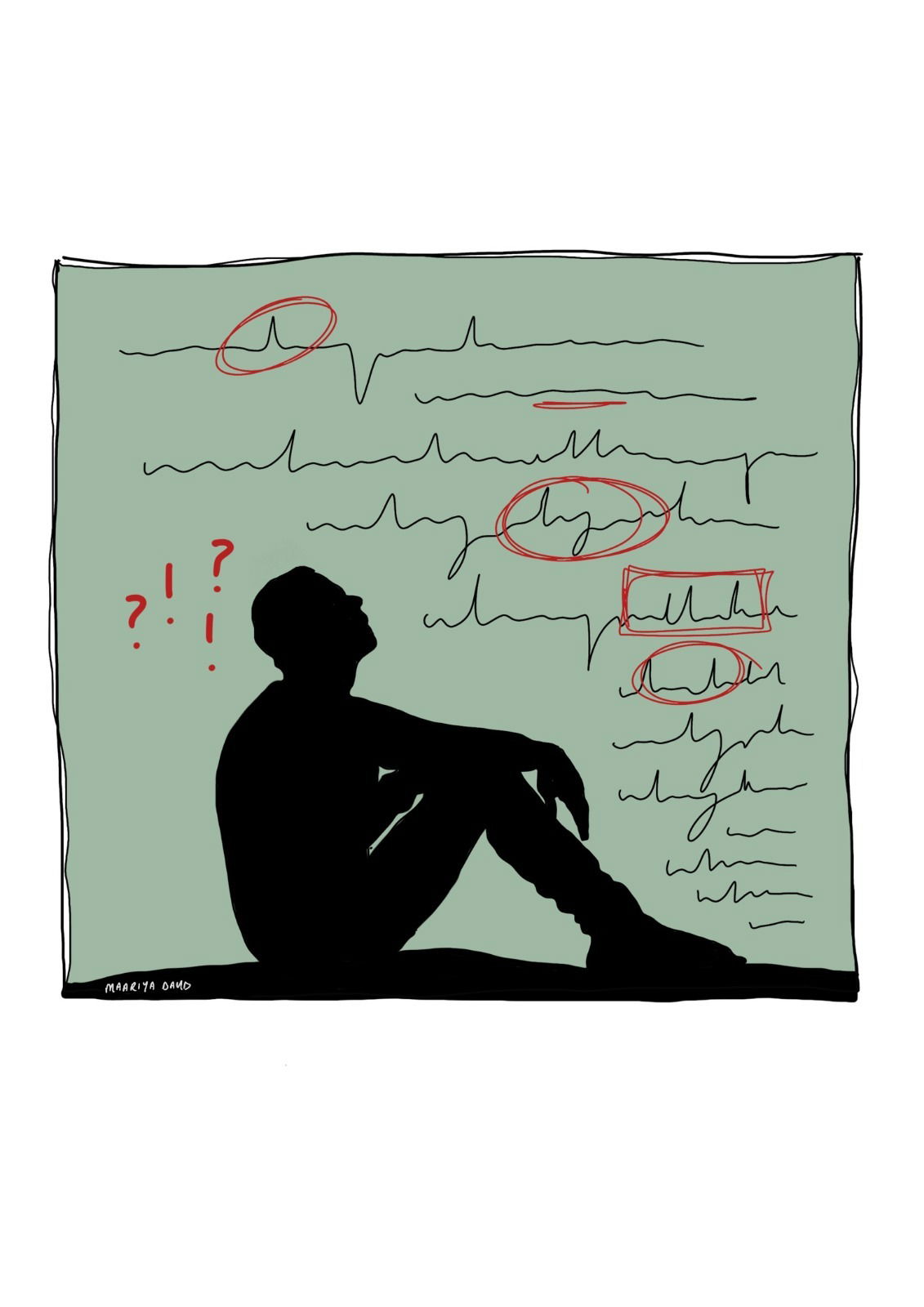Absolutely not

Over the course of my life, writing has amplified my need to question everything. As a child, I was taught the complete opposite. Obey your elders and don’t question what they tell you. Admittedly, I was quite proficient with it.
I don’t miss those days.
Not only has being curious impacted my writing, but I also constantly preach and promote questioning everything as often as I can; even occasionally questioning your own principles and morals no matter how lifelong they’ve been instilled within you. Questioning core beliefs doesn’t mean they are or ever were wrong. Careful examination may cause them to strengthen. But since we as humans are continually changing, the same could be true for our strongly held beliefs.
Some people may believe that questioning their beliefs is similar to conceding or compromising their values. Others will take it further and feel that listening to others with conflicting views is akin to a surrender or defeat.
This poisonous way of thinking is prevalent throughout social media. More and more, people are posting that if you are not part of their faction, alliance, or political party, then it is impossible for you to be correct and therefore, listening to those views is a complete waste of time.
This line of so-called reasoning is more than damaging, it discourages creative thinking. It is limiting and self-promoting; in many ways, it’s a precursor to arrogance and narcissism. But what is more concerning are those who do not realize this kind of reasoning has begun to infiltrate their own judgement and perspective.
“I would never be like that,” is perhaps what some may be thinking. If this was your reaction, you may want to consider some thorough self-reflection. “I would never be like that,” can be an excuse not to question oneself and be blind to one’s own shortcomings.
Some may be asking, “Am I guilty of this way of thinking?” Again, questioning yourself doesn’t mean you were guilty, it means you want to be vigilant and not allow yourself to become an unknowing victim.
One sure-fire way to test yourself is to observe how often you use absolute statements in your speech as well as the written word. Statements such as “I’m always on time,” “You never listen to me,” or “There’s only one way to do this,” are all absolute statements. There is no wiggle room; no other way of considering what has been said.
I’ve seen headlines that read, “The 7 things you have to know for success,” or some other statement of “fact” that exposes how limited that person’s analysis and perception will be. Has there ever been a book or an article written that has produced total success with 100% of its readers?
These kinds of statements stand out because they use key words like never, always, every, only, none, and other words that imply completion, inclusion, or exclusion. While the author might not have intended to appear so narrow-minded, absolute statements can set the tone to limit insights and evaluation.
Perhaps I’m rebelling against my younger self, but when I come across an absolute statement, my mind frequently runs through different scenarios looking for an exception or ways to disprove it, which is not at all what the author intended.
The other day, I was reading a post in which the author stated, “We can never go wrong when we make the choice to be kind.” Admittedly, I could not agree more with this statement. I have tried my best to choose kindness at every opportunity where it presented itself.
Kindness can never be emphasized enough, and it’s typically ignored or overlooked in situations where it’s most desperately required. However, if I could magically transform every human walking this planet into a huge lump of kindness, I still would take issue with the way it’s stated.
If someone is repeatedly offensive to you after you’ve shown them kindness, you are not obligated to continue showing kindness for their rudeness. The best way for kindness to never fail is if everyone chose kindness 100% of the time! (Wouldn’t that be great?)
If you are prone to using absolute statements, there are a few ways to overcome this sinister yet subtle habit. Instead of “We can never go wrong when we make the choice to be kind,” rearrange and restate it without the word “never.” Take a moment and try it for yourself.
Another simple way to eliminate absolute statements is to turn the statement into a question. “Have you ever chosen kindness in difficult situations? A question has the advantage of allowing your readers to think and it naturally stimulates their imaginations, which is much better than confining them – unless of course that is precisely what you are hoping to accomplish.
Admittedly, there are times in writing when anything less than an absolute statement could be detrimental to the plot but generally, absolute statements do more harm by revealing to the reader that the author may not be too concerned about your perceptions.
Telling people what to do or how to think will rarely convince them that their ideals or principles are incorrect. Presenting ideas in a creative and less forceful manner has much more impact. Perhaps you may have noticed that throughout this article, I’ve left little hints of ways I avoid absolute statements.
It’s vital that we humans remain curious and questioning; this is how we improve, evolve, and grow. Reducing the use of absolute statements is a simple and effective way we can all encourage others on this journey we call life.
ABSOLUTELY NOT article written by John Dunia in collaboration with Beauty & the Beast Publishing, Image by Maariya Daud, Intern at Beauty & the Beast Publishing